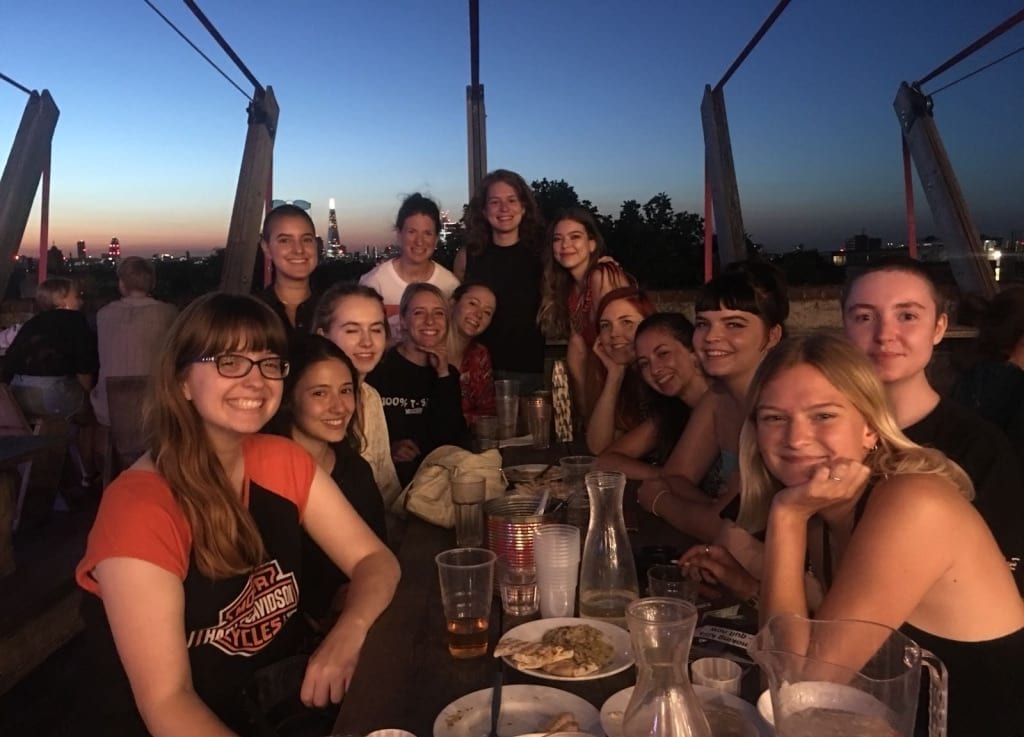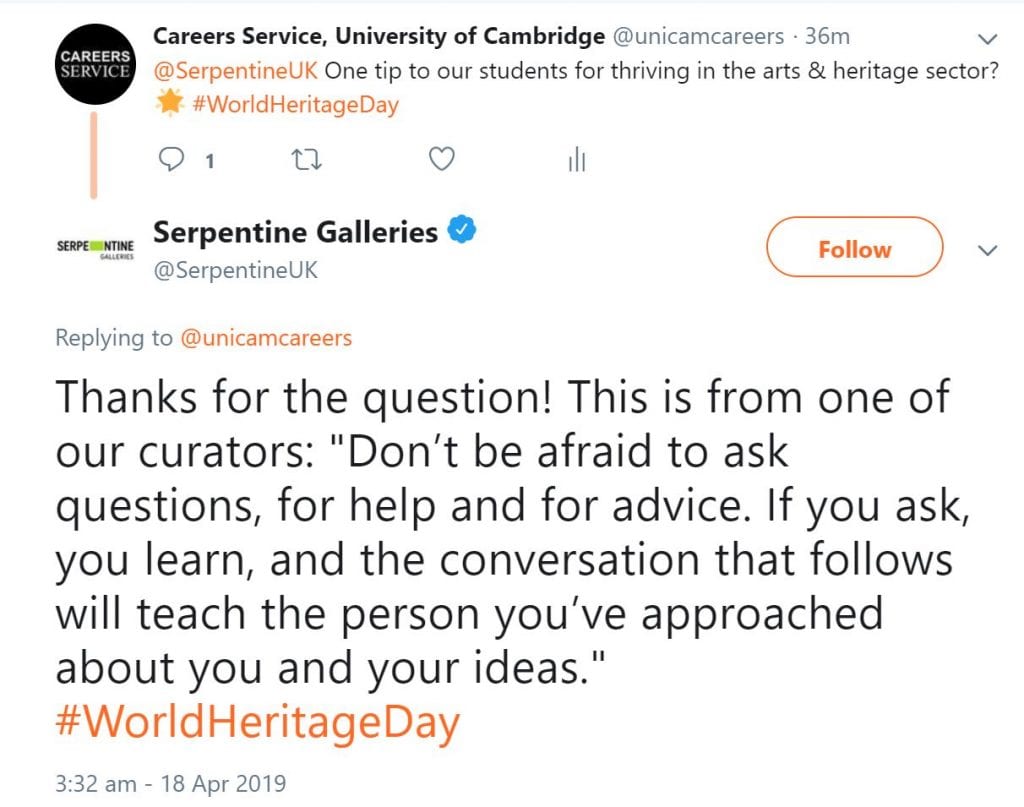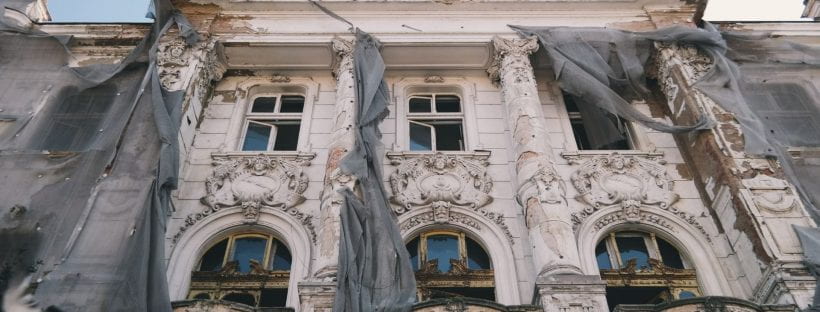To mark World Heritage Day, we’re sharing our top advice on getting into the arts and heritage sector
Arts, Culture and Heritage are very influential to the economy – they drive tourism and are vital for cultural identity.
Festivals, museums, performing arts, venue management, record labels, community arts, arts in local and central government, arts therapy, galleries, English Heritage, National Trust, artist agencies, arts education, arts consultancies and on and on – employing huge numbers of people across an equally huge range of roles.
Arts and Heritage is business. A creative work environment, with enthusiastic people, and an interesting and often surprising “product” but it is still a business with finance, strategy, marketing, programming, fundraising, outreach and much more.
There are broadly two routes into a paid job in this sector
- Finding a starter position in an arts or heritage organisation and working your way up from within the sector. Do not be picky about your first paid job – you probably won’t be in it long. The list of arts managers who started as secretaries, office administrators, or the office administrators assistant dogs body is a very long one. Use your first job to make contacts and learn the trade
- Training in a specific area (e.g. Administration, HR, IT, Finance, Marketing, PR) and then moving into the arts/heritage organisation as an experienced hire
Either way, work experience is absolutely essential – showing commitment, developing skills, giving insight. A relevant degree must be in combination with demonstrated skills which you can only get through work experience.
Don’t just act, play an instrument, dance or paint – get involved and help organise the concerts, exhibitions, and events.
Unfortunately, some arts and heritage work experiences are unpaid or on a voluntary basis. Our Summer Bursaries of up to £500 exist to enable students to gain the arts or heritage work experience they need. The deadline is 13 June for the arts and heritage strand of the Bursaries, so don’t delay in getting your applications in!

Read about Summer Bursary recipient Eli’s experience as an unpaid trainee for an arts org here
Useful resources for volunteering
- Cambridge Voluntary Service keeps information on over 200 local groups, all charities or not-for-profit organisations, involving volunteers and the volunteer opportunities on offer.
- The National Centre for Volunteering offers a range of services designed to support volunteer managers and organisations that involve volunteers
- Creative and Cultural Skills share information on getting work experience and careers advice for the cultural industries
Graduate Schemes and Internships
Do not expect to find dozens of graduate schemes and internships in this sector. The larger funded organisations do run internships, but most organisations are too small to have these. You may find opportunities that are called ‘internships’, but they are usually not the structured training experiences you might find in more corporate settings. They are advertised throughout the year, not mainly in the autumn as the corporate ones are.
A bit of advice from Serpentine Galleries on getting into the arts and heritage sector…

